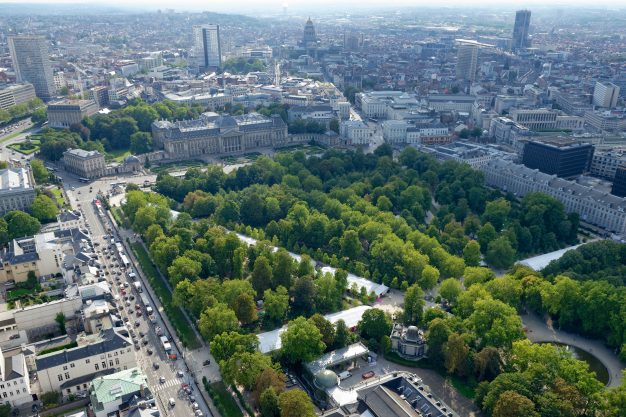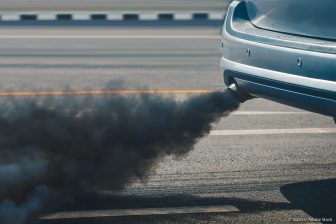
Air quality at schools across Brussels well above global guidelines – report
A new multi-agency study of 19 municipality areas of Brussels shows that schools in the Belgian capital are exposed to toxic nitrogen dioxide (NO2) levels exceeding new global air quality guidelines.
Les Chercheurs d’Air, Brussels Environment and Bloomberg Philanthropies worked with the local authorities to measure nitrogen dioxide – a pollutant for which road traffic in the Brussels Region is 60 per cent responsible.
This took place over a 12-month period, from November 2020 to October 2021, at 134 locations, including 67 schools, two kindergartens, and with the help of more than 50 Brussels residents who participated in the study.
The findings indicate that NO2 pollution concentrations are higher than World Health Organization (WHO) guidelines – set at 10µg/m3 annual average concentrations – at each and every one of the 134 locations throughout the Brussels region, some by more than threefold.
The same findings apply at the locations measured by the 54 Brussels residents. All of them are also exposed to NO2 levels above the WHO guidelines. For instance, the NO2 levels were exceeded by more than four times at Rue Dansaert, and a measurement point located on Boulevard du Jardin Botanique recorded an average concentration of more than 50 μg/m³.
‘Children, who are still growing, are vulnerable to this pollution’
These air quality measurements were collected under particularly favourable air quality conditions after COVID restrictions greatly slowed economy activity and road traffic over this time period.
Pierre Dornier, President of Les Chercheurs d’Air, said: “Despite COVID restrictions and a reduction in road traffic levels, the main source of NO2, the air in Brussels remains too polluted. Children, who are still growing, are particularly vulnerable to this pollution. It is neither normal nor acceptable that so many schools are exposed to NO2 concentrations dangerous to public health. It is urgent to accelerate the implementation of ambitious measures, such as the deployment of new school streets and the reinforcement of the low-emissions zone to improve air quality in the Brussels Region.”
Of the 134 locations where testing took place, 132 of them have promised to comply with the European annual limit value of 40 micrograms per m³ – a limit which must be respected under penalty of possible sanctions from Europe. Two sites located on the Brussels ‘petite ceinture’, a highly trafficked roadway in the city’s center, exceeded the agreed upon levels with concentrations of 45 and 52 μg/m³. Discussions are currently underway at European level to align these measurements closer to WHO guidelines to help better protect the health of citizens.
Air pollution is a real public health issue and, according to IRCELINE, 323 Brussels residents died prematurely in 2018 due to nitrogen dioxide. Air pollution also causes cardiovascular and respiratory diseases and generates economic costs to society.
‘The results are alarming’
Alain Maron, Brussels Minister for Climate Transition, the Environment, Social Action and Health, said: “This innovative measurement campaign has enabled us to work hand in hand with citizens, to identify in more detail pollution hotspots in our city. The results are alarming and should encourage us, at all levels of power, to strengthen our efforts to improve the quality of the air we breathe every single day and reach the WHO guideline values.
“This is critical because air pollution has a significant impact on our health. A secondary measurement network will be made permanent, and ambitious measures will be taken to better protect the health of Brussels residents, in particular the most vulnerable, such as children and the elderly. »
Antha Williams, who leads Climate and Environment programs at Bloomberg Philanthropies, added: “Every child in Brussels deserves to breathe clean air, yet that is unfortunately not the current reality. This report shows the critical importance of tracking air pollution in cities and collecting data to identify where action is most urgently needed to combat its harmful impacts.
“At Bloomberg we recognise that cities are at the forefront of solutions to safeguard citizens, particularly those most vulnerable, from being exposed to harmful pollution. By working with cities like Brussels, as well as London, Paris, Delhi, and Jakarta, we hope to empower local governments and civil society with the necessary data to take more aggressive action to combat air pollution and protect the health of all citizens.”




